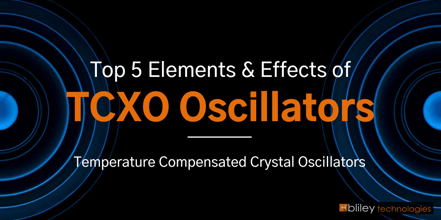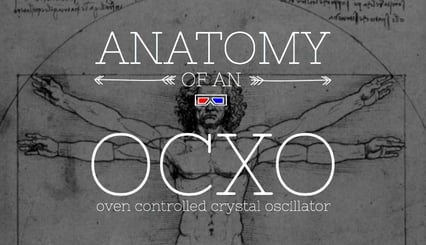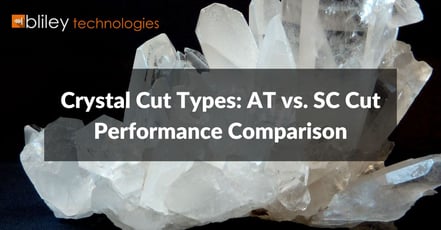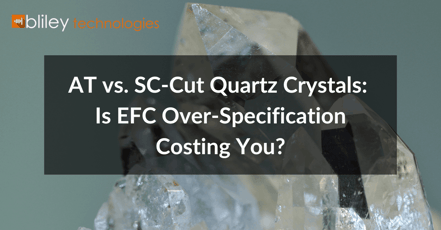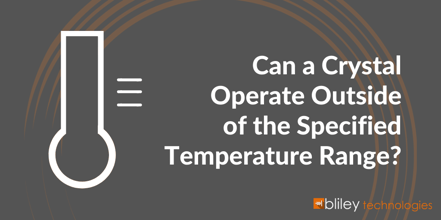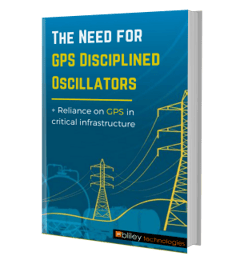Complementary metal-oxide-semiconductor (CMOS) clocks are a key technology that enables everything from laptops and smartphones to satellites and spacecraft. But what exactly do these devices do, and how are they beneficial in extreme environments and demanding applications?
In this article, we'll give a quick overview of the benefits of CMOS clocks and how RF engineers put them to work in some of the most challenging applications.
Read More
Topics:
crystal oscillators,
Clocks & Crystals,
RF Technology
There are so many different devices and products for frequency generation and timing, and with all the acronyms and complex terminology of the RF industry, it can be confusing trying to understand what each type of clock or oscillator does.
In this article, we’re going to help clear up some of the confusion around CMOS clocks. We’ll cover what these devices are, why they're important, and how to know if they're the best fit for your application.
Read More
Topics:
Clocks & Crystals,
RF Technology
The process of buying crystal oscillators can be a headache if you don't know what to expect. But learning the basics of how to procure frequency control devices can help you plan accordingly and reduce your frustration.
There are three main things you should know about crystal oscillators and frequency control devices when ordering them:
- They have long lead times
- They typically have a long shelf life
- They have large purchased lot sizes
Let's dive a little deeper into each of these to give you a better idea of how they'll impact your purchasing strategy. We'll keep this blog short and to the point, but if you want to learn more, we've included links to our more in-depth articles on each topic.
Read More
Topics:
crystal oscillators,
Clocks & Crystals
The most common types of crystal oscillators in electrical and RF engineering include OCXOs, TCXOs, VCXOs, and clock oscillators. In this post, we'll be reviewing the basics of temperature compensated crystal oscillators (TCXOs).
Read More
Topics:
crystal oscillators,
Clocks & Crystals
The oven controlled crystal oscillator (OCXO) is near the top of the food chain when it comes to quartz-based frequency control devices, superseded only by the mighty double oven crystal oscillator (DOCXO).
In this blog, we'll review the basics of how an OCXO works, the terms you need to know, how to determine the turning point, and the differences between AT and SC crystal cuts.
Read More
Topics:
engineering,
crystal oscillators,
Clocks & Crystals
Inside every quartz oscillator is something called a crystal blank. The crystal blank is the resonating element of the oscillator that, when subjected to a voltage potential, will begin to vibrate and oscillate at its fundamental frequency.
The way the crystal blank is manufactured can have a significant impact on the oscillator's performance. In this blog, we'll be discussing how the orientation of the quartz when the crystal blank is cut can affect how your oscillator performs.
Read More
Topics:
crystal oscillators,
Clocks & Crystals
What if we told you that specifying more electronic frequency control (EFC) than you need could actually be hurting your company's wallet? Well, it very well may be!
Paying attention to whether your supplier is using AT-cut or SC-cut crystals will help you save money in the long run when it comes to oscillators. In this article, we'll review the difference between these two types of cuts and the impacts of EFC pull.
Read More
Topics:
crystal oscillators,
Clocks & Crystals,
RF Technology
Will a crystal oscillator operate outside its specified temperature range? This is a common question and the short answer is: yes, but it's complicated.
If, for example, a crystal oscillator is specified over 0 to 60 °C, it will most likely perform without any issues over -40 to 85 °C. But it's possible that it will fall outside its specified stability. This may not matter if the application needs just a stable frequency rather than an accurate frequency.
Read More
Topics:
crystal oscillators,
Clocks & Crystals
Poor manufacturing environments can significantly reduce the performance quality of a pressure transducer. A failing pressure transducer will lead to problems with sensors and will provide inaccurate readings (or none at all).
A faulty pressure transducer can not only cause frustration and waste time, but it can also lead to unnecessary costs.
To prevent pressure transducer problems or failure from happening in the first place, let's take a look at seven pressure transducer troubleshooting methods to keep your transducers and sensors working great!
Read More
Topics:
Clocks & Crystals,
RF Technology,
general
Do you know all about atomic clocks in space and how they work? If not, it's about TIME you do. (Haha. Ha. Ha...)
Timing is everything when it comes to GPS satellites and other space applications. Even just a one-microsecond error in timing can lead to an error of 300 meters on the ground. Because atomic clocks can maintain very precise timing, they're a great solution for GPS and other LEO satellites.
Read More
Topics:
Clocks & Crystals,
RF Technology,
Space & Satellites



